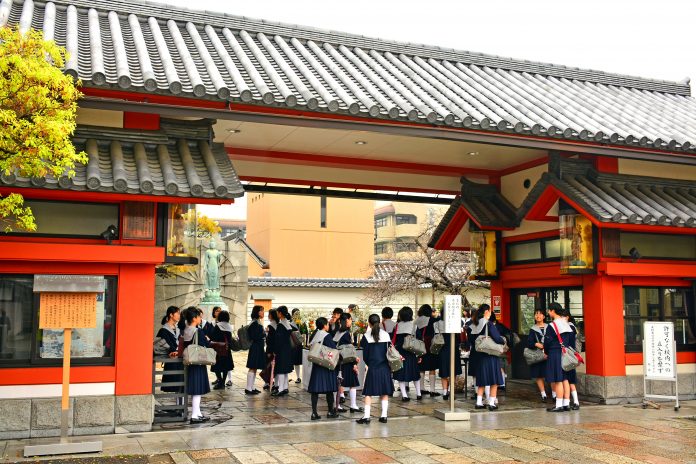How do we define success in schooling? Makoto Yururi, associate professor at Showa Women’s University re-examines this difficult question
-
What is success in schooling?
In the wake of the Covid-19 pandemic, we now need to re-examine this difficult question: How do we define success in schooling? We no longer live in an age of “creation without dominant models.” There is no right answer, but we must take the initiative to find the optimal solution and co-create the change we want through trial and error.
Of course, this relates to all school levels, but based on the results of various surveys, we have identified secondary education as the main target for change. Compared to other school levels, secondary education has continued to face many challenges, to varying degrees, internationally. How do we redefine the success of secondary education in the perspective of “our well-being“, and generate a dynamic curriculum at the local grassroots level that creatively fosters agency in action toward the co-creation of a sustainable society? This is our challenge.
-
Problems faced by secondary education
As a result of our critical analysis of the current state of secondary education, we have identified two main problems: a rigid and fragmented curriculum and a closed, exclusive, and routinized school organizational culture. This is even more so when the emphasis is on success in examinations, as is the case in Japan. If there were no entrance exams or regular academic tests (or clear academic quotas), how serious would students be about learning? To what extent would we be able to engage students with the attractiveness of learning itself and the social and cultural value of learning? We need to rethink our assumptions about the curriculum and how it is created.
The disciplines that form the basis of the secondary education curriculum were originally interdisciplinary, and their purpose was to pursue truth, goodness, and beauty. Now, in order to solve increasingly complex social and environmental problems, the nature of this discipline is attracting renewed social attention. However, in secondary education, opportunities to explore the world in an interdisciplinary manner and to teach and learn in a creative style are very limited. Such learning is often treated as a luxury option, but rather, it should be placed at the core of the curriculum.
3. Towards curriculum renovation at the grassroots
We have been building prototypes of new curriculum models based on the concept of “co-creative learning,” which has much in common with the OECD Education 2030 framework. What is important is how to systematically generate the new curriculum in each school. Our survey of high school teachers in Japan revealed that approximately half of them are interested in “co-creative learning” and are making personal efforts. The problem is that it is not being done at the organizational level. It is true that recent curriculum policies have triggered a change in teachers’ attitudes, but changing the institutional environment alone will not change the school organization.
The key to substantive change is a co-creation process based on grassroots dialogue. Curriculum design and its management are actions that involve value judgments. It is essential to foster a sense of ownership to create change by oneself, while unlearning various assumptions that schools and teachers tend to regard as self-evident.
We came up with 11 essential questions, as shown in the table above. Stakeholders in each school (including teachers and students) will come together to dialogue about these questions, draw up their own visions, and co-create the “core” of a specific curriculum.
4. Valuing creativity over productivity in education
We would like to shift our focus from trying to increase the “productivity” of education from the perspective of economic rationality to more of a “creativity” orientation. The various constraints surrounding secondary education can also be a source of creativity for school organizations. That is why it is urgent to establish a system to empower schools and teachers.
Through co-creative learning in secondary education, we should critically examine the nation, society, and science that adults have built up, and enable teachers and children to enhance their own creative agency. The goal is to enrich our lives in the here and now, and to co-create a flourish future for us all. We firmly believe that the success of school education is when people can say, “I learned everything important in my life from school,” and that is what we are trying to achieve. The world is wider and more exciting than ever. Our challenge will continue.
11 essential questions for schools and teachers to unlearn
- What are the characteristics of modern society that we need to face? What are the positive/negative changes in society that need attention?
- Society in the year 20XX, what is the worst possible crisis situation you can imagine? What is the best future you can hope for?
- What are the human qualities and competencies that will become increasingly necessary in the future?
- What are the educational contents that should be treated more intensively in school education?
- What processes do we need more of to teach and learn?
- How do we want our students to live? What do we want for our students’ lives?
- What is the best educational/learning experience you have had in your life?
- What would we do if there were no national curriculum standards or packaged textbooks?
- What kind of professional competencies are increasingly required of schools and teachers? What will we continue to learn and try as role models for our students?
- What kind of relationships should schools and teachers develop with people inside and outside the school and what challenges should we take on?
- How do we define success in school education?
Acknowledgment
This work was supported by JSPS KAKENHI Grant Numbers 20K20337, 18K02345.
Please note: This is a commercial profile
© 2019. This work is licensed under CC-BY-NC-ND.











